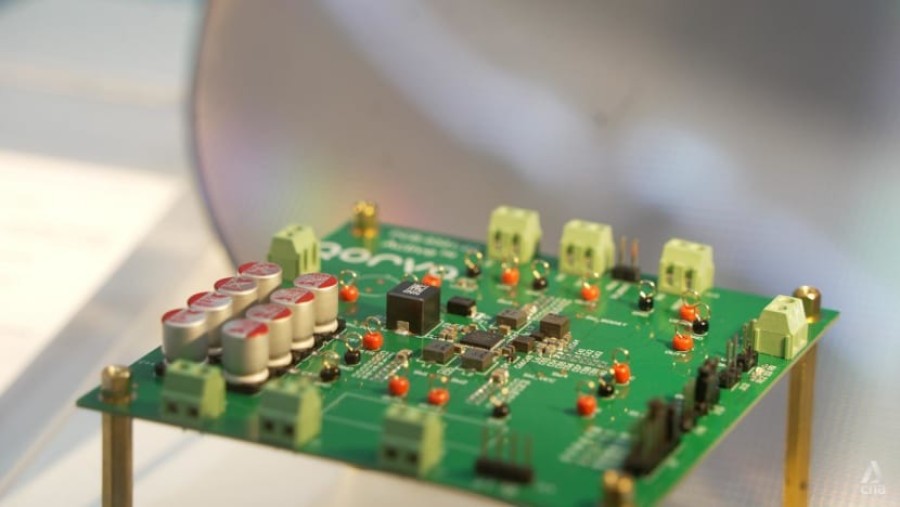Vietnam counts on young talent pool to attract semiconductor giants

Vietnam may be trailing behind some of its regional neighbours like Malaysia in developing its semiconductor industry, but the Southeast Asian nation has been drawing its fair share of attention from industry players.
Prominent semiconductor chip designers such as Intel and Amkor have set up shop there, drawn to its young population and potential talent pool. The government has seized on its comparative edge to introduce reforms and incentives to attract semiconductor giants.
It has bold visions to develop a full-scale ecosystem over the next 25 years, aiming to train at least 10,000 engineers every year. “We have abundant sources of talent, and we are very ready
South Korean electronics giant Samsung is one firm benefiting from the talent pipeline in Vietnam.
It selected 10 top university graduates from northern Vietnam to join a new semiconductor training partnership, where they will be in a master’s degree programme that covers the entire supply chain, from designing microchips to producing semiconductors.
The students will graduate in a year and work for Samsung’s semiconductor plants in South Korea.
“The term ‘semiconductor’ has been talked about in Vietnam more frequently in recent years,” one of the students, Nguyen Thi My Duyen, told CNA. “I think it’s a good opportunity … for me personally, and for Vietnam as well.”
Vietnam is “rapidly emerging as a semiconductor powerhouse” in Southeast Asia and is in a good position to contribute at every stage of the value chain, said regional industry association SEMI Southeast Asia’s Kay Chai Ang.
According to the industry association, the country’s semiconductor market is set to hit US$18.23 billion in 2024.
“The growth is driven by strategic investment and a long-term vision from the Vietnamese government to build a comprehensive semiconductor ecosystem by 2050 from integrated circuit design, assembly test and packaging, said Mr Ang, who is chairman of the organisation’s Regional Advisory Board.
He was speaking at the SEMIExpo Vietnam held in capital Hanoi last week.
CORDIAL RELATIONS WITH CHINA, US
Vietnam’s cordial relations with both China and the United States also make it a relatively safe bet for investors.
The two superpowers have been locked in a trade war since 2018, with tensions causing supply chain shifts in the growing global semiconductor sector.
Analysts also said they see a lot of uncertainty in how the return of Donald Trump to the White House will impact global trade and supply chains, and that they are optimistic about Vietnam’s potential.
Nevertheless, some investors have said authorities will need to address major bottlenecks that have plagued other industries in the country.
These include administrative reforms and implementing innovative policies to ensure a sustainable supply of clean energy – critical elements for the semiconductor industry.
“Investors want a fast and clear process for investment. If it takes a few years before they can invest, investors will just go to other countries. They cannot wait because time is the critical element,” said Vietnam’s Minister of Planning and Investment Nguyen Chi Dung.
"About 50 top semiconductor firms in the world have invested in Vietnam. Nvidia is also coming to Vietnam. Top names like that will be in Vietnam,” he added.
According to the minister, Vietnam is mulling over plans to simplify investment procedures and provide more attractive incentives for foreign firms investing in the semiconductor industry.
Vietnam currently has no semiconductor manufacturing or fabrication plants where raw silicon wafers are turned into integrated circuits or chips. These are crucial components in a variety of electronics, from washing machines and cars to smartphones and missiles.
ESTABLISHING PRESENCE
Some global semiconductor giants have established a presence in Vietnam for chip design as well as chip assembly, testing and packaging.
Last year, US-based Amkor opened its $1.6 billion chip factory in Vietnam’s Bac Ninh province, in what it calls its most advanced facility in the world.
Besi, a Dutch multinational company that designs and manufactures semiconductor equipment, recently opened its plant in Saigon hi-tech park in Vietnam's Ho Chi Minh City.
"Part of the reason we are here is also because we follow our customers," said Steven Lim KT, vice president of strategic projects at Besi Vietnam.
As Vietnam strives to become a hub in the global semiconductor industry, local firms are also trying to put their names on the map.
The country’s leading tech firm FPT is building a chip testing factory in Hoa Lac High-tech Park. The company said it is focusing on power management integrated circuits and will soon announce its AI chip design.
"Here is our big dream, our ambition. We would like to be the number one integrated circuit design (company) in Southeast Asia," said Nguyen Vinh Quang, founder and CEO of FPT Semiconductor.
"We (Vietnam) do pretty good in exporting rice. But in our generation, we would like to change a little bit from rice export to chip export,” he added.
